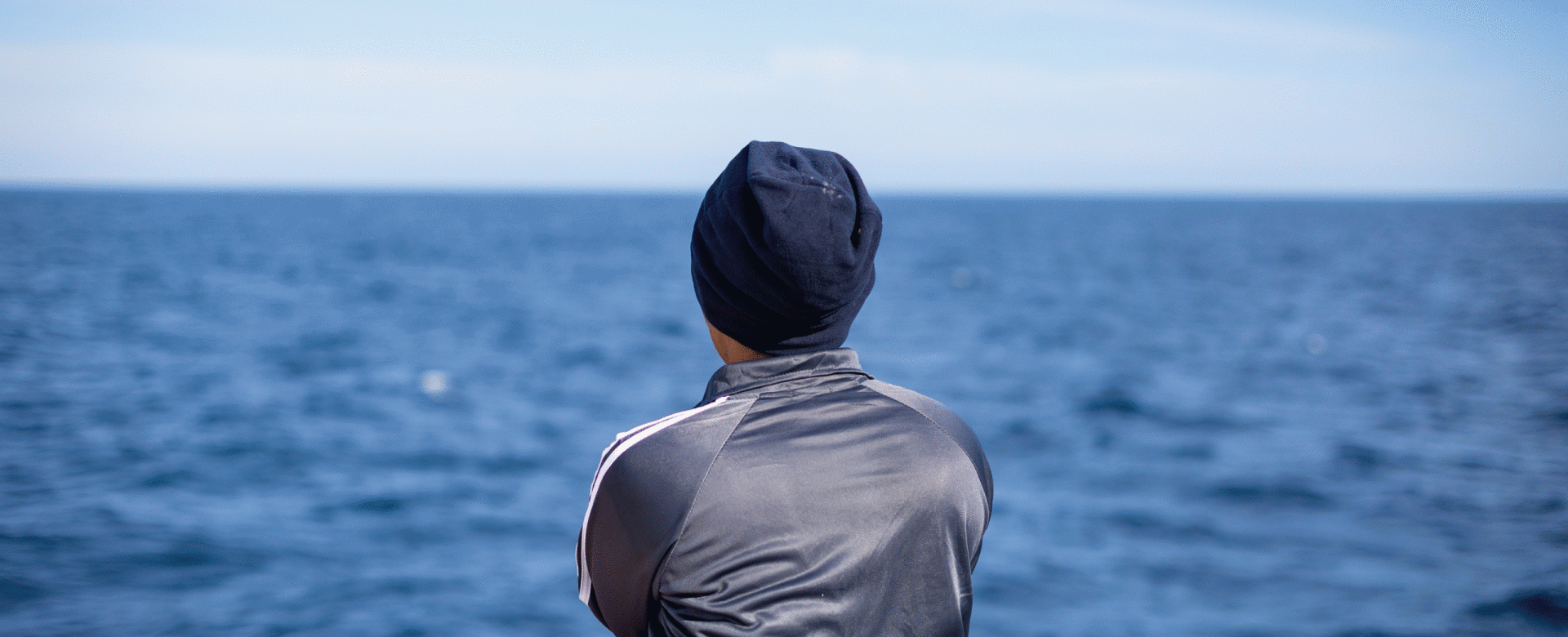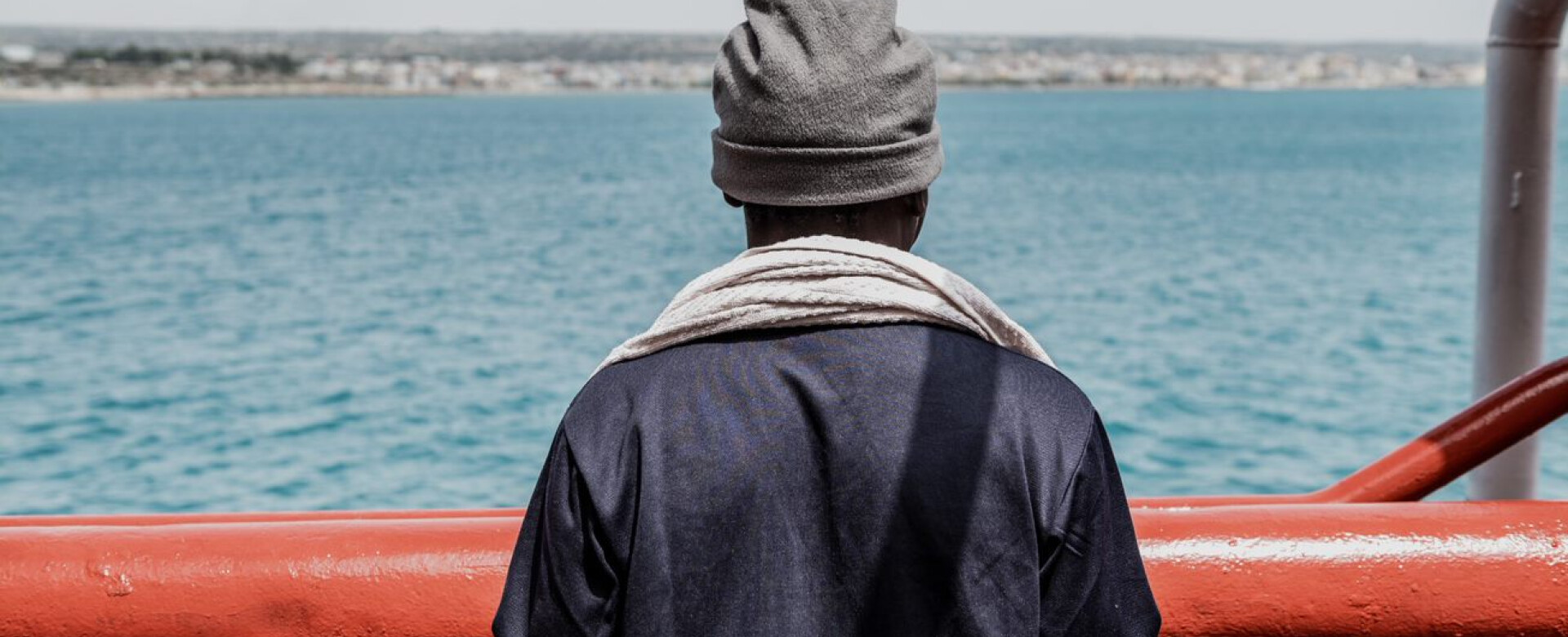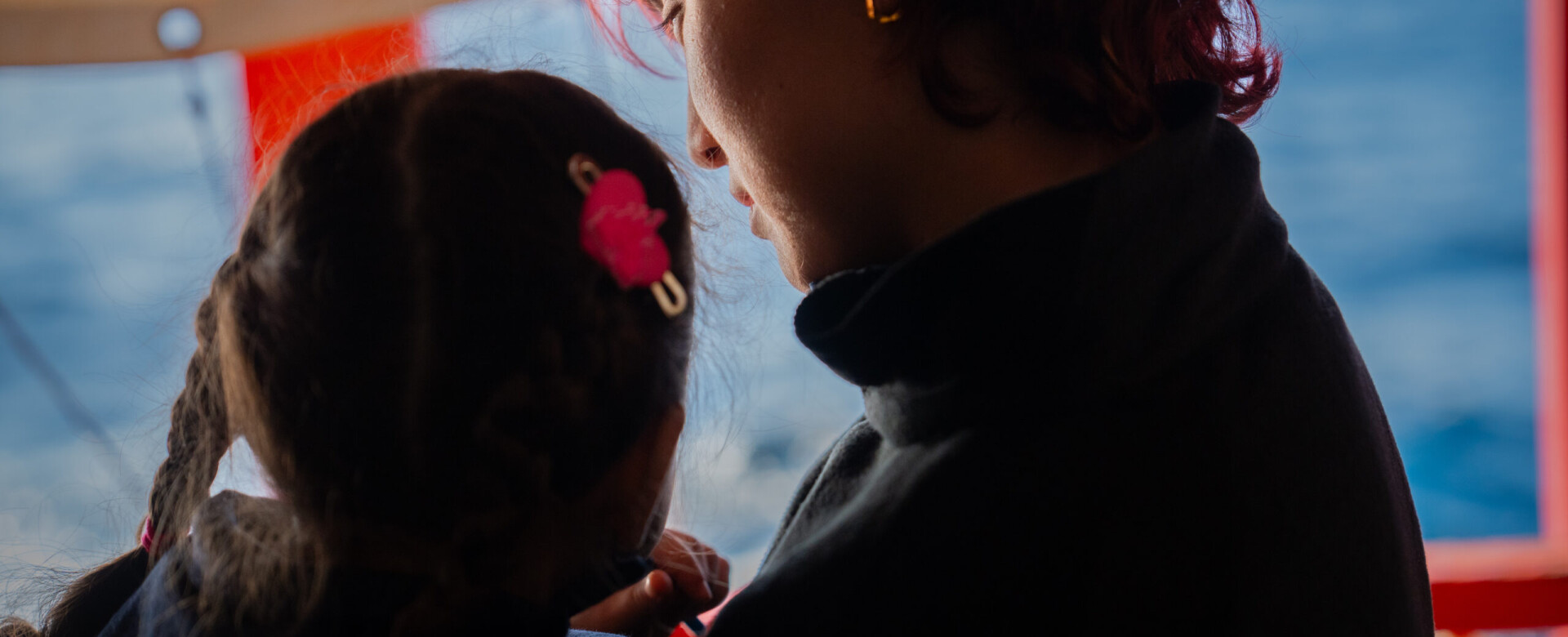
[TRIGGER WARNING] This text describes acts of physical and sexual violence as well as slavery.
Favour*, from Nigeria, was 23 years old when he was rescued from distress at sea by the team of the Ocean Viking on 31 July 2021. Before disembarking in the port of Pozzallo, Sicily, he shared the story of how he was tricked into travelling to Libya with false promises, just to discover that he had been sold into a form of modern slavery. Favour wanted his story to be shared to caution others. For him, a political solution is the only way to break the cycle of exploitation and abuse that he fell prey to in Libya. With the disembarkation just hours away, Favour was most looking forward to contacting his mother.
“Maybe she thinks I’m dead,” he said, “but I will find a way to reach her and tell her I’m alive.”
“At home, my life was at stake. My grandfather gave me a piece of land, and I was using it to support my family while working as a fashion designer. There was a man in my area who wanted to have this land and he started threatening me and threatening to wipe out my whole family if we didn’t leave that land. He murdered my grandfather. I went to the police, but they didn’t do anything. This man was very influential, and the Nigerian police only work for those who have money.”
“I came to Libya after being deceived by someone I thought was a friend. Being a fashion designer, he told me there was a lot of work in the fashion industry in Libya. What I didn’t know was that in reality, he had sold me. I spent two years in Libya in total. When I escaped from the people I had been sold to, I started working as a brickmaker. But when you finish your work with Libyans, they don’t like to pay you. I never wanted to cross the sea, but I had to learn that in Libya, there is no freedom. Just oppression everywhere.”
“After being intercepted at sea, a lot of the women don’t have anyone to pay for them, so they are sold. That’s human trafficking.”
“The first time I tried to cross the sea, I was intercepted by the Libyan coastguard and sent to Tarik Al Sikka detention centre in Tripoli. It’s 3000 Dinars to get out, 5000 Dinars for women. Men are beaten every single day at that prison, and the girls are raped. Many Nigerian women fall victim to human trafficking. Every time I see them, I cry for them. After being intercepted at sea, a lot of the women don’t have anyone to pay for them, so they are sold. That’s human trafficking.”
“To get out, you ask a friend outside of the prison to pay the police. Or you try to escape. I know people who tried to escape from Abu Salim detention centre. They were shot at with machine guns. Ten of them were killed. My friend was hit by a bullet. To me, it seems like the international organisations are also afraid. Sometimes when they came to us in the prison, the Libyans just threw them out. Even when you’re very sick, the Libyans don’t allow them to take you out.”
“I want the man who deceived me to be judged. Because (…) I know he will keep doing this.”
“The police also do the business of launching people to cross the sea. Some people pay to be released from prison, and at the same time they pay for the police to put them on another boat. When the police organises a departure, they put a sticker on the boat, so that the coastguard knows it was launched by them and lets it through.”
“This sea should not be used for business. People lose their lives there every day.”
“In my opinion, as long as Libya doesn’t have a real government, people will continue to die at sea. Because people are being oppressed there. Everybody has guns in Libya, including children.”
“I wish I had not left. I wish the police in my country was working like it should. First, the citizens must be protected, and then Nigeria’s border must be controlled. There are so many Nigerians in Libya because they are not protected at home, and because the border is not controlled.”
“I want the man who deceived me to be judged. Because I know that I am not the only one he has done this to. And because I know he will keep doing this.”
***
*The name has been changed to protect the identity of the survivor.
Photo credit: Flavio Gasperini / SOS MEDITERRANEE


